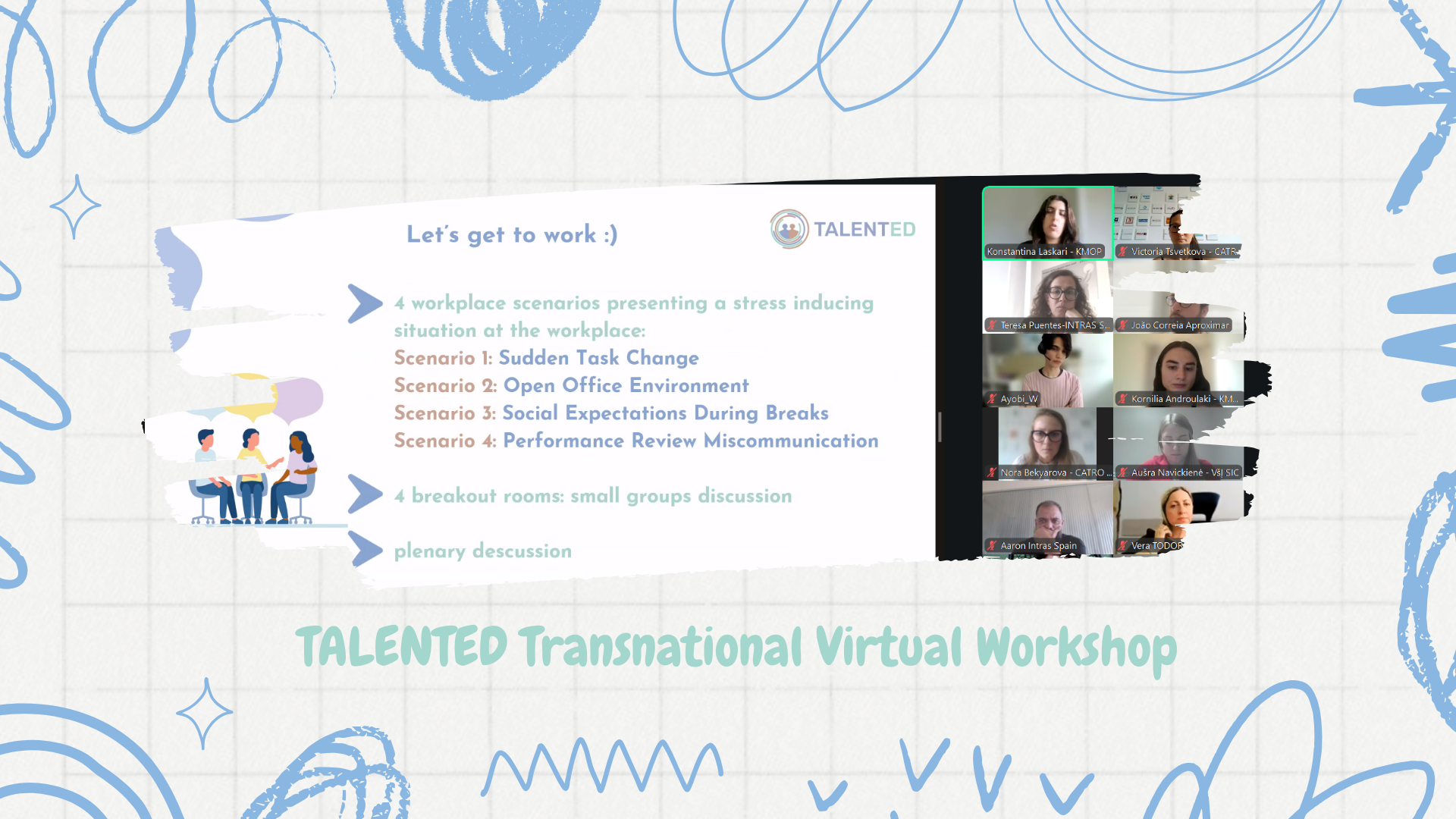Yesterday we held the TalentED transnational virtual workshop, dedicated to a very important topic: “How adults with autism can cope with workplace stress?”.
The aim of the workshop was to exchange ideas and insights with professionals, which will serve as a foundation for developing a collection of tools, techniques, and exercises to support stress management at work. Here’s what happened:
🧐 WHO TOOK PART
The workshop brought together 15 experts from 7 countries: Bulgaria, Lithuania, Spain, Greece, Germany, and Portugal. They contributed a wealth of diverse experience in working with autistic adults and in designing workplace wellbeing programmes.
Among the participants were psychologists and therapists, social workers, autism and neurodiversity specialists, academics, and HR consultants. All were actively engaged and shared valuable insights in support of our project’s mission: empowering autistic adults in their career pathways, while also raising awareness among employers and teams to foster more inclusive and supportive workplaces.
🔍 WHAT WE DISCUSSED
- We explored everyday workplace situations that can be confusing or unclear (e.g. poorly structured performance reviews, sudden task changes, working in open-plan offices, social expectations during breaks).
- We looked at communication barriers that often arise in such situations – and how they can increase stress and anxiety.
- We discussed practical strategies for giving and receiving clearer feedback, along with stress management techniques to use in these contexts.
- We highlighted the importance of setting personal boundaries and communicating preferences that contribute to both resilience and a healthier work environment.
- We placed special focus on self-advocacy – how autistic employees can request accommodations and support, not as a burden on the company, but as a right and a way to improve the productivity of the whole team.
💡 KEY TAKEAWAYS FROM THE WORKSHOP
- Feedback works best when it is specific, supported by examples, and comes with clear expectations.
- Preparation and expectation management are essential – scenarios, practice exercises, and role-plays can be extremely helpful.
- Stress is a normal part of work, but with the right strategies (frequent breaks, sufficient processing time, written communication, etc.), it can be managed effectively.
- Everyone should have the space to express their needs – whether that means quiet time, written formats for instructions, or extra time to reflect and process.
- Self-advocacy is not just a personal choice, but a key part of building fair and supportive workplaces.
✅ WHAT’S NEXT
The collected ideas and exercises will be included in an upcoming resource with guidelines and practices for managing workplace stress for people with ASD. We are also finalising the training modules that form part of the training curriculum we have created for autistic adults.
Soon we will share useful materials and practical exercises that can be used not only by autistic people themselves, but also by trainers, educators and other professionals who work with them and want to provide support.
Stay tuned and follow us on LinkedIn, Facebook, and Instagram to learn first what’s next. And don’t hesitate to reach out to our team if you have questions or ideas for joint initiatives on this topic.

